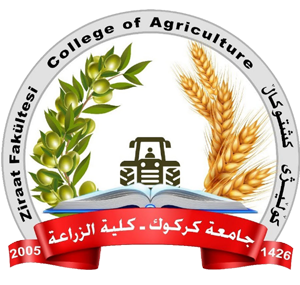The College of Agriculture discussed a master's thesis on genetic variation of the second and third generations in flax using the factorial hybridization design, for the student Suhaib Hakim Issa, under the supervision of Assistant Professor Dr. Abdulsamad Hashim Noman, and Professor Dr. Muhammad Ibrahim Muhammad.
The study aimed to evaluate the performance of the genetic compositions of parents and hybrids in the isolation generations in the growth and yield traits
and its components, and to estimate the general union ability of parents and the special union ability of the resulting hybrids in the isolation generations for the growth and yield traits and its components, and to estimate the components of phenotypic, genetic and environmental variation in the isolation generations for the studied traits, and to estimate some genetic parameters such as the degree of inheritance in its broad and narrow meanings and the average degree of dominance and expected genetic improvement as a percentage in the isolation generations for the studied traits, and to estimate the strength of the hybrid and the deterioration in internal breeding in the isolation generations for the studied traits.
The study concluded that the genetic compositions differed in the mean square values of the variance analysis table as well as the variance analysis table according to the factorial mating system with significant differences in the second and third generations for most of the studied traits. The parents differed in the mean values as well as in the general ability to combine, as well as the hybrids in the mean values as well as the special ability to combine and in the desired direction for most of the traits in the second and third generations. The hybrid strength calculated on the basis of the deviation of the parents’ mean showed significant superiority for the hybrid (Sakha 1 x Sakha 6) and the hybrid (Sakha 5 x Sakha 6) in the second generation and the hybrid (Sakha 2 x Syrian) in the third generation for most of the studied traits.





